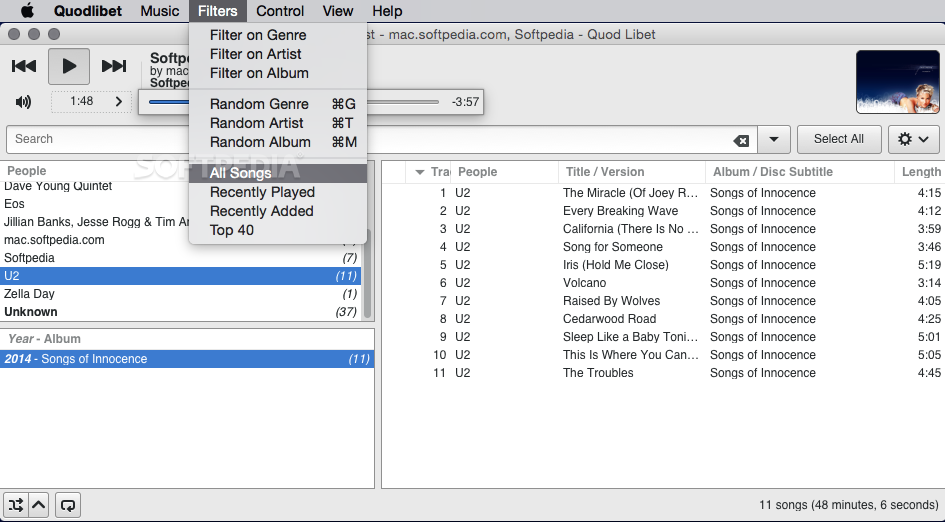

There is kind of a spectrum analyzer that gives a rough idea of the music level. I could see a static bitrate, but no sign of the bitrate as a track plays nor the sample rate/word length. My DAC's location, /proc/asound/card1, showed that a 96/24 track was playing correctly. After installing it, I configured the ALSA output plugin option, which supports automatic bit depth, to use the hardware option for the DAC. 8 open source music players AudaciousĪudacious is available in my system's repositories. First, I'll tell you a bit about each and then I'll share my ratings. I also passed on Aqualung (required compilation from source), Alsa Player (core dumped on trying to add a 96/24 FLAC file to the playlist), Elisa (site indicates it is still in heavy development and currently at version 0.2 or 0.3), Exaile (seems that the current version 4.0.0-rc3 requires compilation from source), GNOME Music (waited a looooong time with no sign of my music library being successfully loaded), and LXMusic (could only add MP3 files to the playlist).Įliminating those applications left me with eight to review. Several players- Jajuk, Lollypop, Lplayer, Museeks, Musique, Qmmp, and Rhythmbox-contain no controls (that I could find) to select an output device. A number of very thoughtfully designed and popular players don't serve my criterion of passing music directly through to my DAC, including Amarok (see this discussion), Clementine (see this discussion), and JuK ( the only information I could find about setting output devices dates back to 2005).
#QUOD LIBET SHARE ITUNES SOFTWARE#
Here in the second part, I'll use those criteria to help you pick the right software for your needs.įirst off, there are a lot of open source music players out there! Which is a wonderful thing, because each one is designed to make someone (or several someones) happy, depending on the features they require. In the first part of this series, I write about the key requirements for an audiophile digital music player and shared the criteria I use to evaluate open source music players. I don’t have an Apple iPod, but friends could successfully copy music from my QL to their device. It also comes with (and nicely integrates via context menu) the tag editor Ex Falso. You can have ten thousands of tracks in your library and you will still have good performance.Įlaborate search options: You can use regular expressions, boolean and ( &), or ( |), not ( !) (+ greater/lower than ( >, <) for numerical values), search for custom tags and their values, search for playcount, rating, track length, …. It’s based on GTK+, and is available in Ubuntu’s packages.
#QUOD LIBET SHARE ITUNES DOWNLOAD#
covers are displayed (it looks for a file in the current folder named, e.g., folder.jpg) (there is also a plugin that can download covers).playlists are supported (can be exported as M3U and PLS via plugin).Quod Libet (License: GPL v2) seems to have all features you mentioned:


 0 kommentar(er)
0 kommentar(er)
